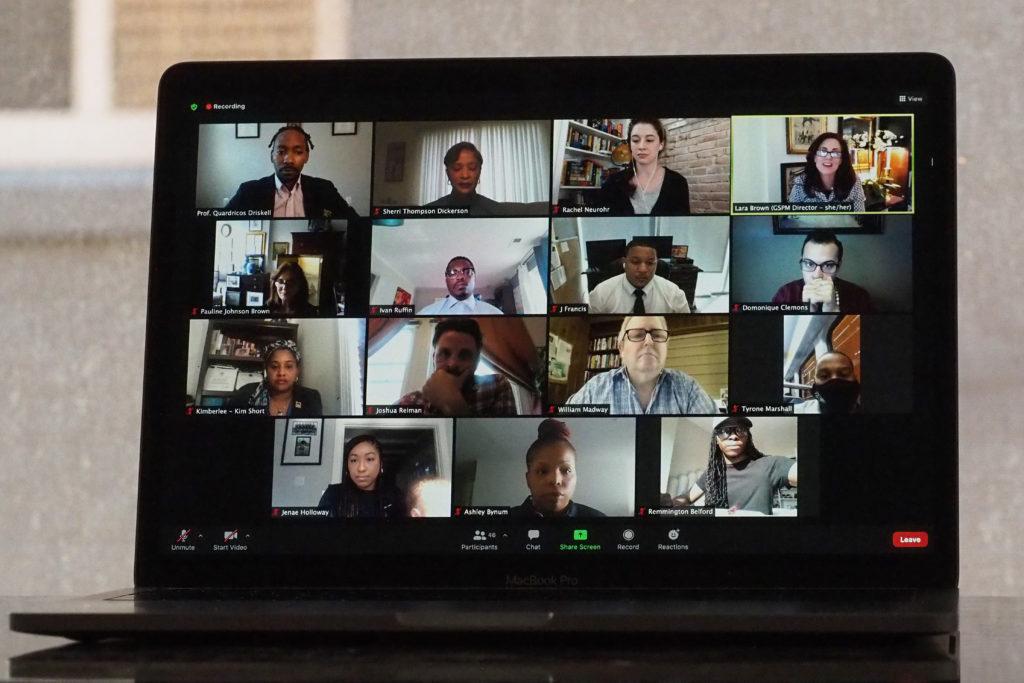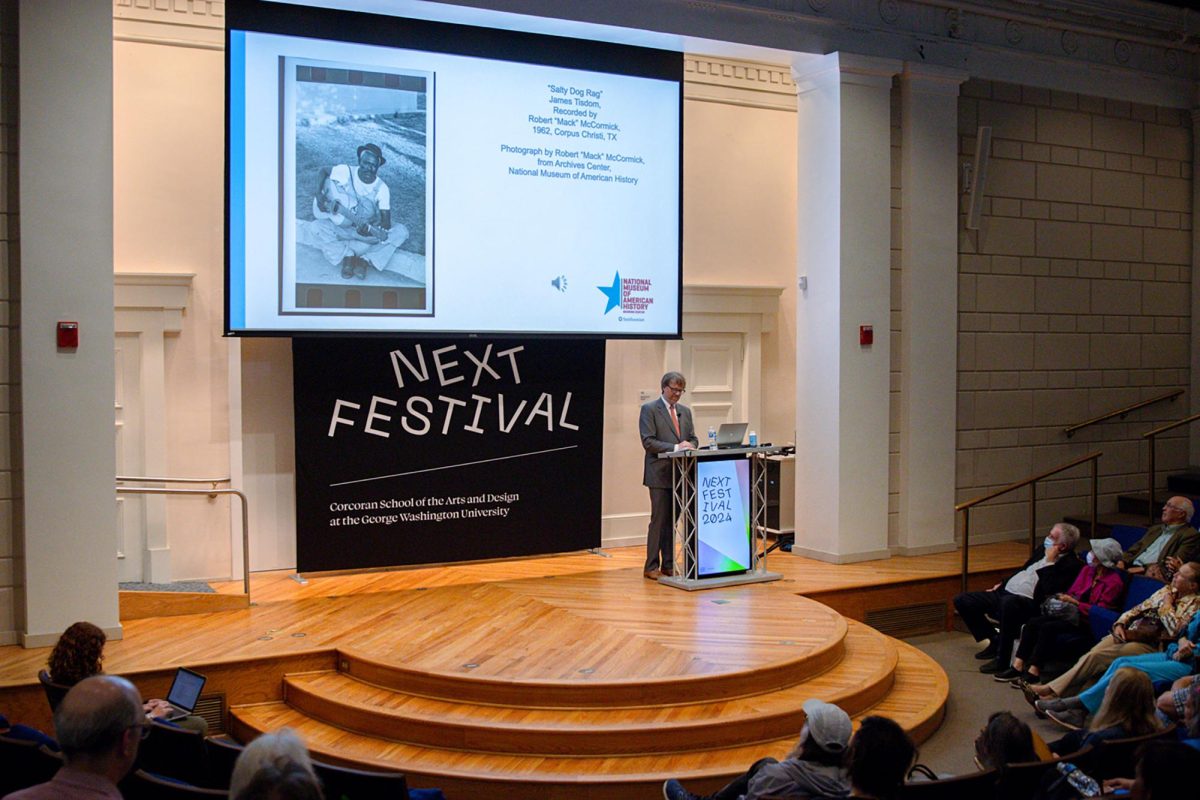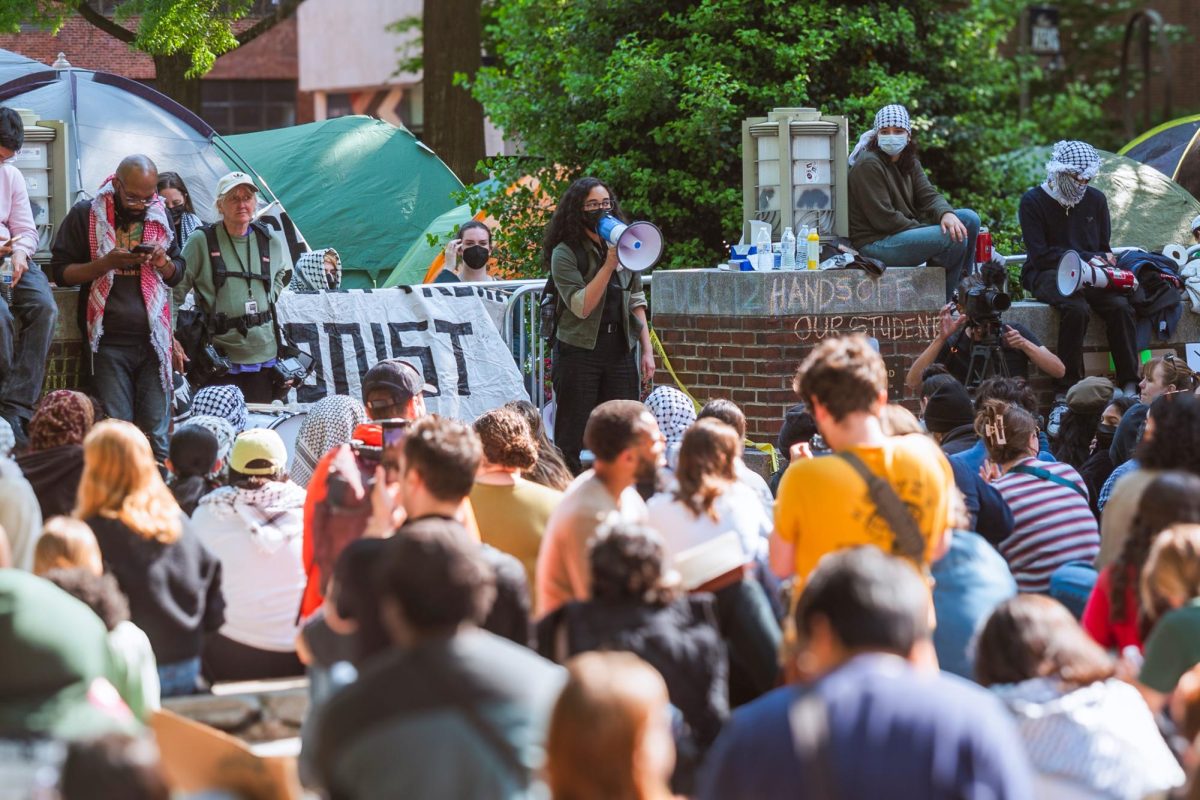Several alumni discussed the ethics of representation and inclusion in national politics and public affairs during a panel event Tuesday.
The Graduate School of Political Management hosted the discussion, which covered topics like the challenges of being Black in politics and public affairs and ensuring diversity reaches the highest positions in political institutions. Quardricos Driskell, an adjunct professor of religion and politics, moderated the alumni panel.
Here are some of the key topics they discussed:
Being Black in politics and public affairs
Jenae Holloway, an associate director of special events at Vogue, said her previous job at Glamour Magazine “rarely touched” on Black women’s experiences and intersectionality even though its content includes female empowerment.
She said she addressed the neglect of intersectional issues to her editors-in-chief at Glamour and Vogue. She said she had “consistent” conversations while writing articles on intersectional issues that dealt with content for all women.
“Everytime I would start clicking the keys, my hands would start shaking, and that would tell me just how much of a risk I knew I was taking by highlighting that even Glamour has not paid enough attention to the intersectional issues that women of color might face,” she said.
J Francis, the senior director of community affairs for Senator Chris Coons, D-Del., said he attended GSPM to gain access to networking opportunities that he previously struggled with in his hometown.
Francis said instead of hiring someone just because of diversity, publications need to “empower” their voices and broaden access to education that provides people of color with the skillsets to be successful.
“To hopefully open the door of access to GSPM to historically Black college and university students and all students of color – that way they have not only the representation and diversity but also the skillsets to make a difference,” Francis said.
Ensuring diversity reaches senior positions
Francis said investment in institutions like GSPM, outreach and educational programs are “deliberate” ways to help prospective employees gain skills for future opportunities.
He said the workforce needs “equity” in the opportunities provided for building connections, networks and mentorships.
“It doesn’t matter how prepared each of us are on this call if the opportunity door is not open,” he said.
Sherri Dickerson, the senior vice president and chief human capital officer of the Washington Metropolitan Area Transit Authority, said trying to get an entry-level job and live in the District is unaffordable. She said a “foundation” is needed to help people of color gain financial resources to obtain internships that lead to higher roles.
She said members of an organization she previously worked for did not understand why they couldn’t hire a diverse workforce, failing to assemble a diverse applicant pool. Dickerson said employers need to demonstrate “intentionality” when they’re trying to attract and hire diverse candidates.
“Without a diverse applicant pool, you’ll never get to diversity,” Dickerson said.
Operating in white spaces
Holloway, the Vogue associate director, said she wrote an article for Glamour about former first lady Michelle Obama wearing her natural hair for the first time after leaving the White House and tried to highlight Obama’s intentional decision. She said she wanted her White counterparts and other women to understand the significance of natural hair in professional industries and push for more inclusive workspaces.
She said when Vice President Kamala Harris made the cover of Vogue, readers didn’t understand the background of being a Black woman in a professional workspace. She said this generated a larger conversation about Harris’ portrayal wearing Converse sneakers on the cover.
“I think when you have blind spots like that because you don’t have people in the room or sitting at the table to be able to advise you on things like this, it can become a challenge for us to make the right decisions in this day,” Holloway said.








